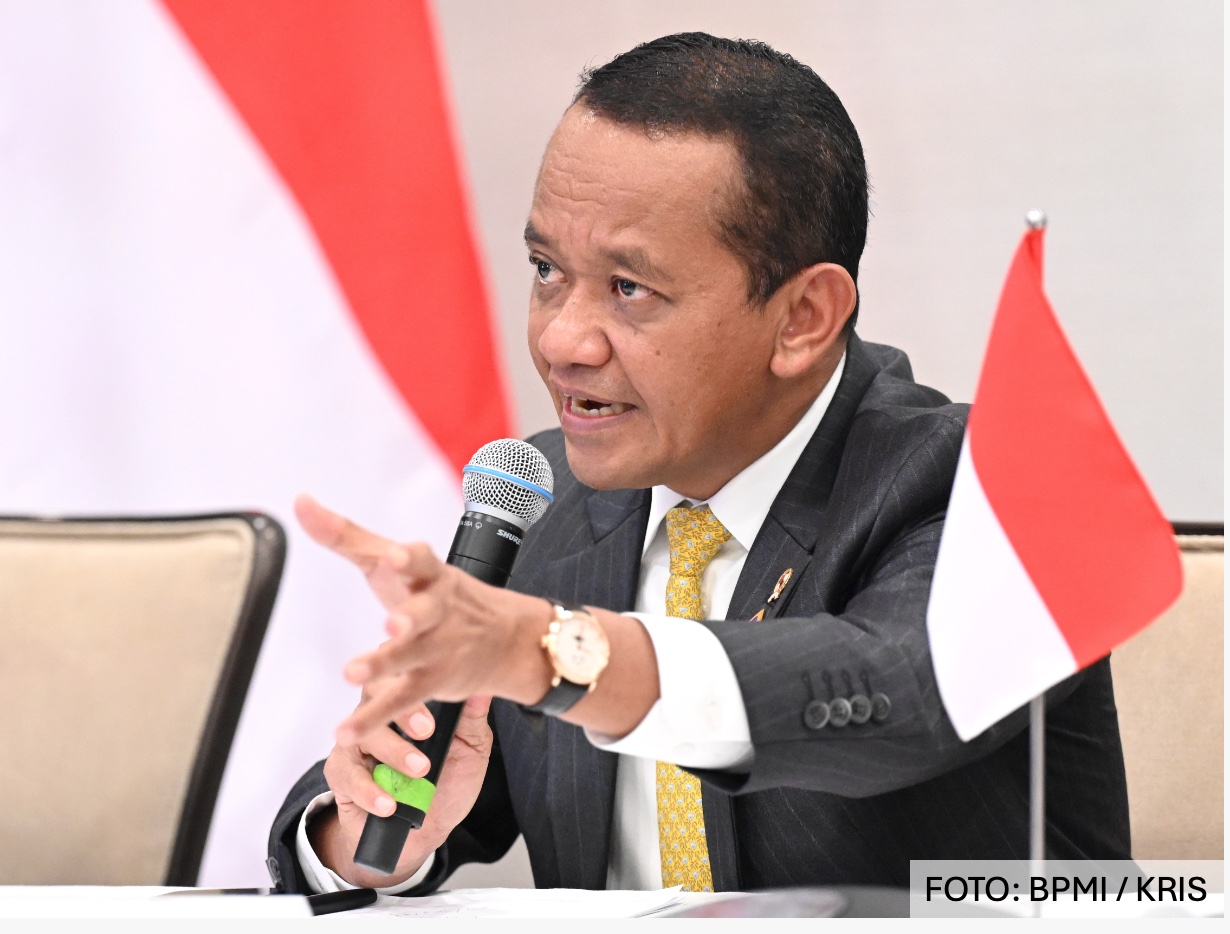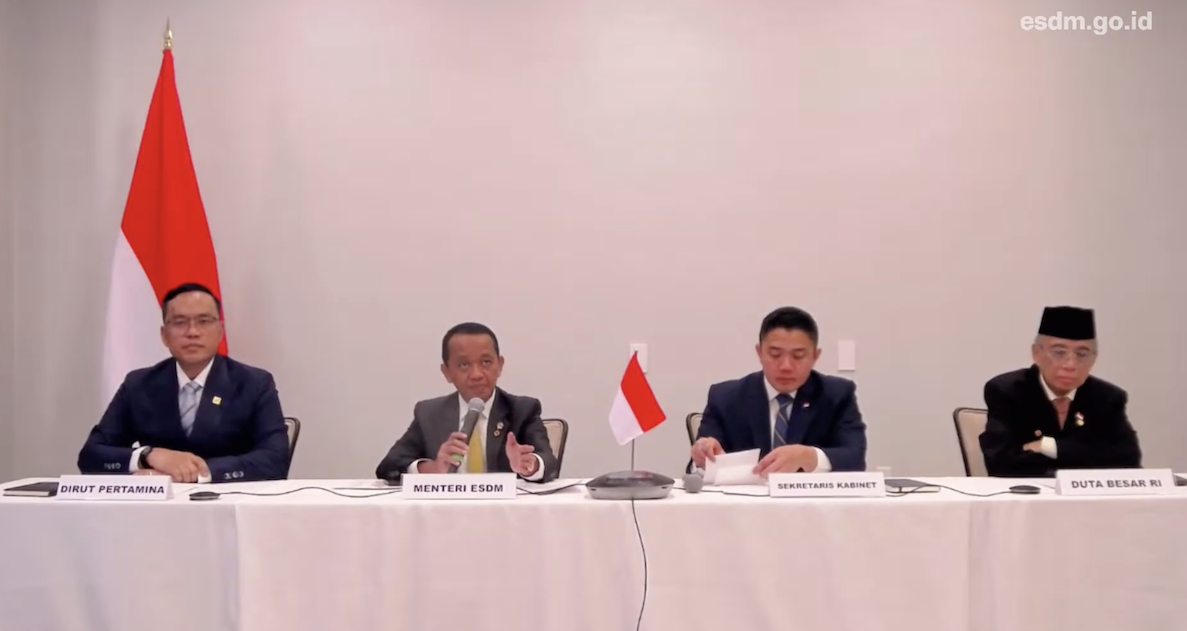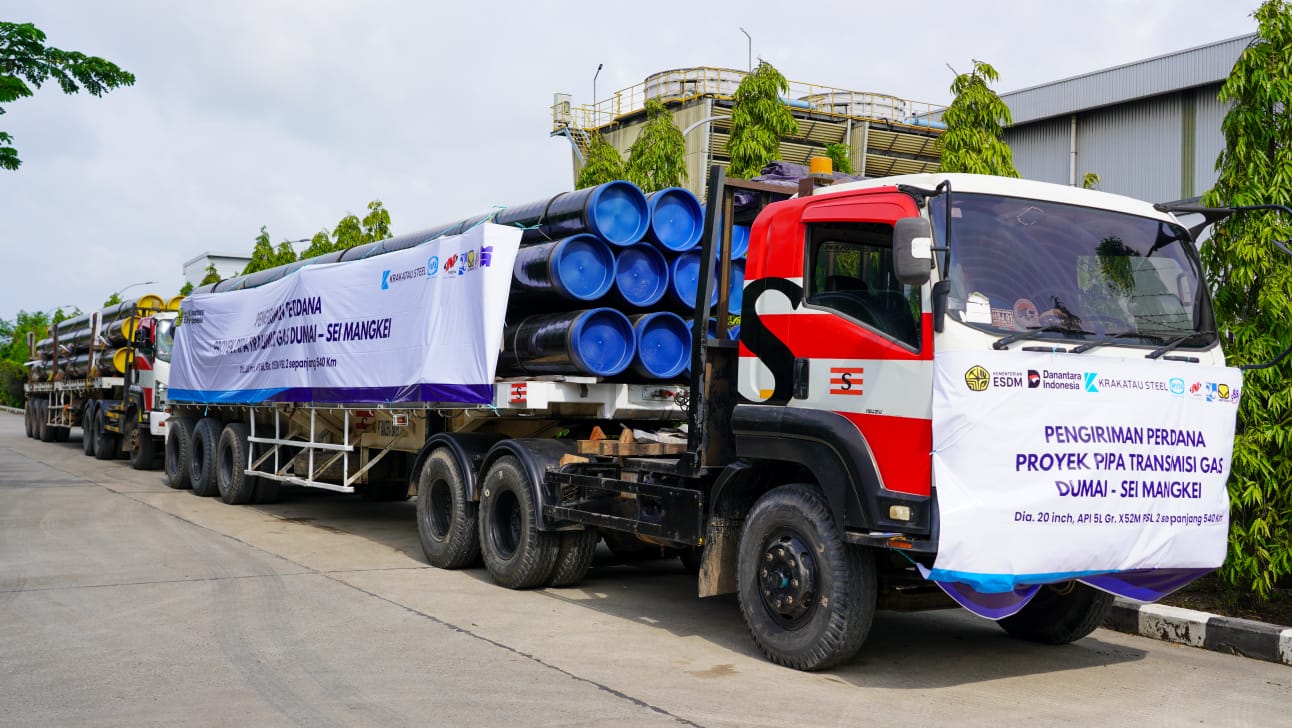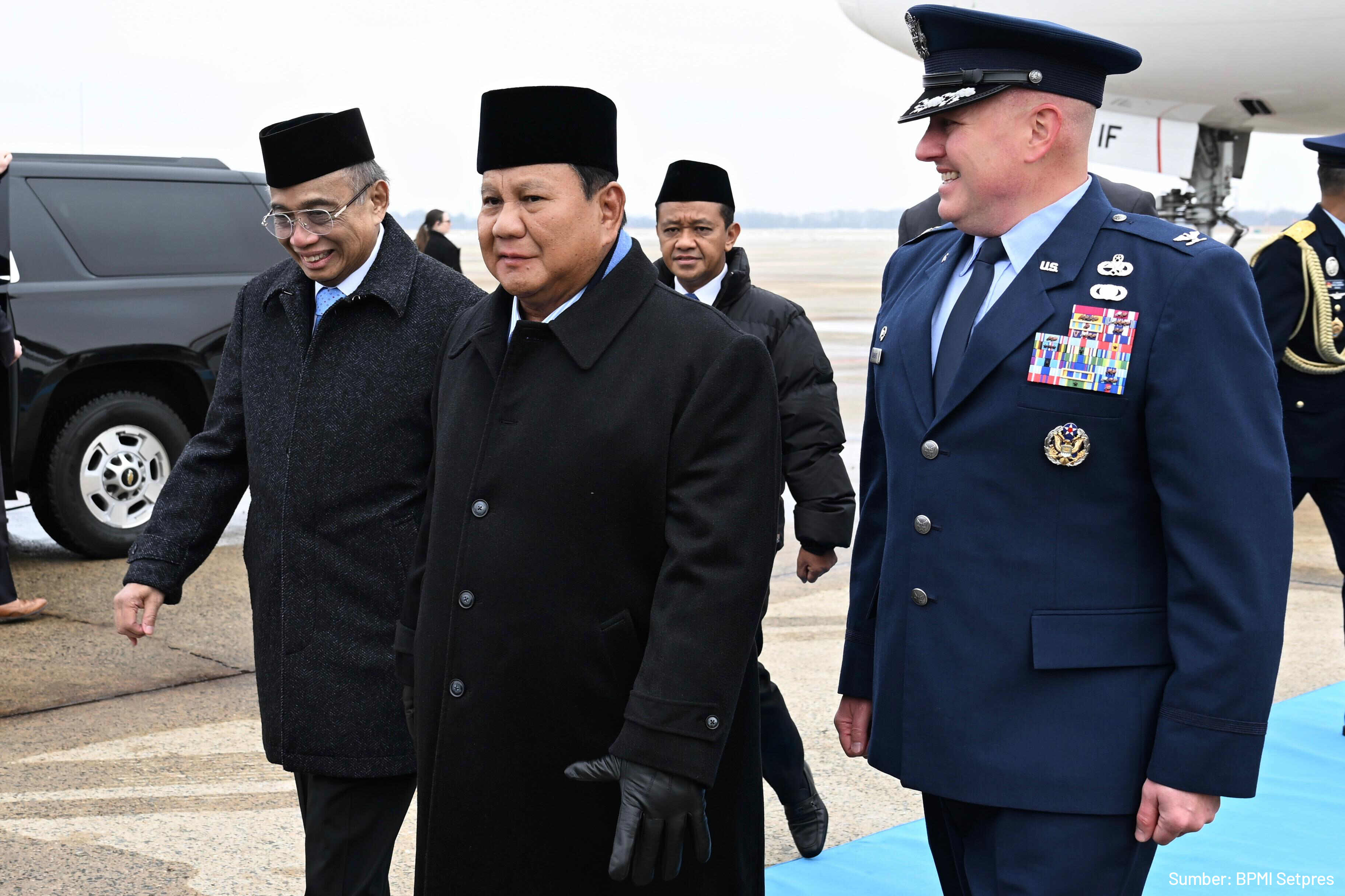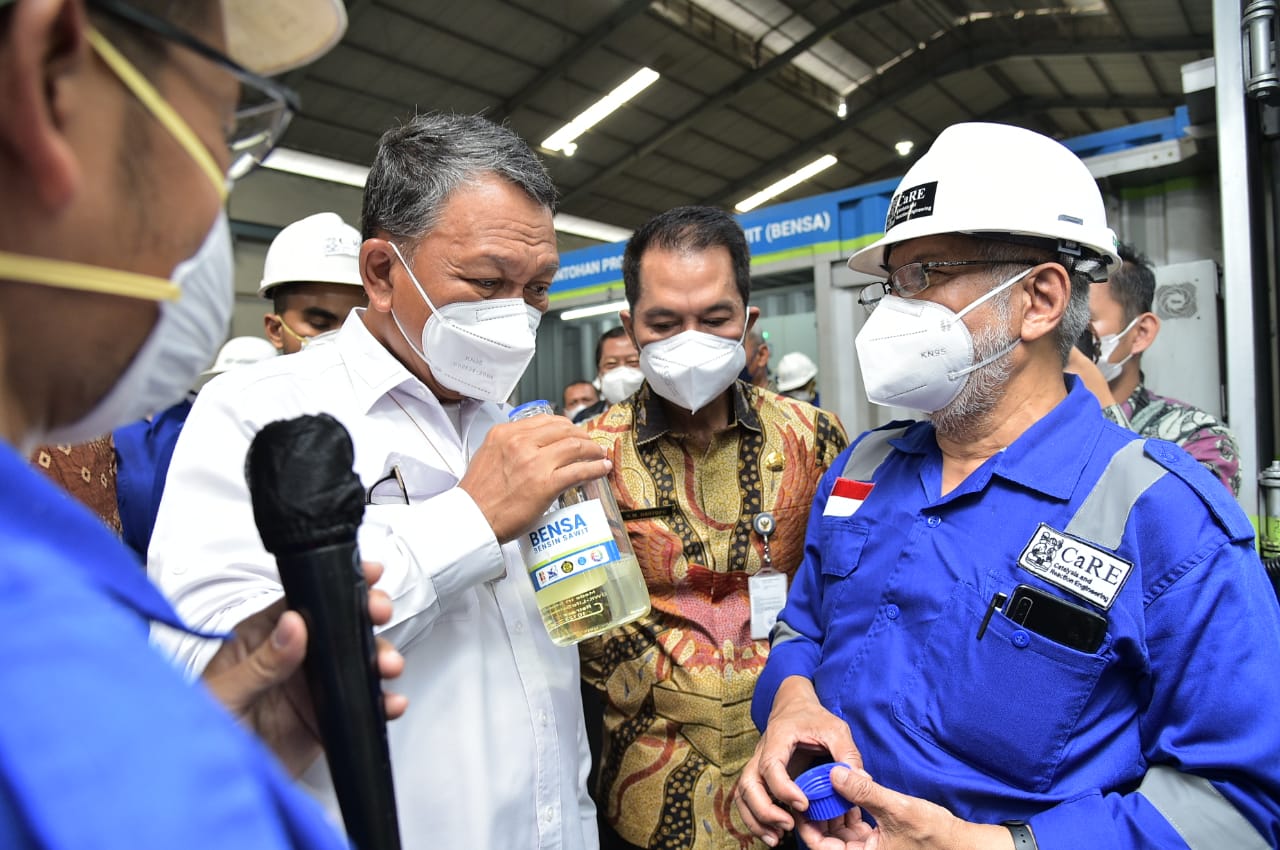
After Biodesel and Bioavtur, Indonesia Trials Palm-Oil Gasoline
MINISTRY OF ENERGY AND MINERAL RESOURCES
THE REPUBLIC OF INDONESIA
PRESS RELEASE
NUMBER: 38.Pers/04/SJI/2022
Date: 25 January 2022
After Biodesel and Bioavtur, Indonesia Trials Palm-Oil Gasoline
After successfully blending palm oil with Solar diesel and jet fuel (avtur), the Indonesian government and the Bandung Institute of Technology (ITB) are conducting trials to produce gasoline from palm oil, or "Bensa" (palm-oil gasoline). The results of the demo-plant trials will serve as parameters in preparing the Feasibility Study (FS) and Detailed Engineering Design (DED) to build Bensa plants in Musi Banyuasin Regency, South Sumatra Province and Pelalawan Regency, Riau Province, with a capacity of 238.5 kilo liters (kl) per day.
"Today, I had the opportunity to see firsthand how crude palm oil (CPO) is processed into gasoline. This idea has long been initiated by the Bandung Institute of Technology, in this case, by Professor Subagjo and his colleagues. Two years ago, we encouraged this project to be scaled up from a laboratory scale. At the current pilot plant scale, which is 1,000 liters of feed per day, the plant can produce Bensa with a Research Octane Number (RON) 115--when the catalyst is fresh. This is a high-quality fuel," said the Minister of Energy and Mineral Resources (EMR), Arifin Tasrif, during an inspection to Bensa Pilot Plant in Kudus, Central Java, on Tuesday (25/1).
According to Arifin, Bensa
is proven to produce high-quality energy which meets the demand of the times, i.e.
environmentally friendly energy. "Therefore, this is the right step. The
challenge is how to make this project commercially competitive," continued
Arifin.
Arifin said that the government will continue to encourage the development of Bensa to achieve energy independence by reducing imports of oil fuels and LPG, both of which have proven to create a burden on state finances.
"We must become independent in areas that our nation needs the most, for example, energy. We have various sources of energy that have not been utilized. We have coal, we have palm oil from plantations. We are trying to increase production; otherwise, we will become a nation which depends on imports," said Arifin.
Arifin went on to say this innovation, although still on a pilot scale, is very important because it will create important parameters needed to go to a larger scale and reduce fuel imports.
"To the ITB team, please keep your spirit to accelerate the experiments. We will think of ways to lift this project up to a commercial scale so that it can be used domestically and exported," Arifin concluded.
The Bensa Pilot Plant converts industrial vegetable oil (IVO) into palm-oil gasoline through a cracking process. The method has been developed by ITB's Catalysis Engineering Center (PRK ITB) and ITB's Chemical Reaction and Catalyst Engineering Laboratory (LTRKK ITB) led by Prof. Dr. Subagjo. The conversion of IVO into palm-oil gasoline is carried out in a reactor, using a zeolite-based catalyst which has also been developed by PRK ITB and LTRKK ITB.
The integration of the upstream and downstream sectors of the domestic palm-oil industry results from a collaboration between ITB and PT Pura Barutama, with funding from the Indonesian Oil-Palm Plantation Fund Management Agency (BPDPKS).
The raw material for the demo plant comes from oil-palm fruit bunches planted in the community replanting program in Musi Banyuasin Regency. The replanting itself is a collaboration between the Regency's Plantation Service Office, a local planters cooperative, ITB researchers, and BPDPKS. The raw materials are processed into IVO at an IVO pilot plant in Musi Banyuasin Regency, which has a capacity of 6 tonnes of IVO per hour. (IY)
Head of Bureau of Communication, Public Information Services, and Cooperation
Agung
Pribadi (08112213555)
Share This!

